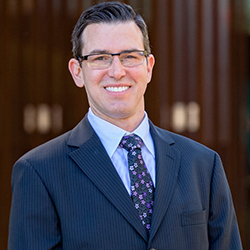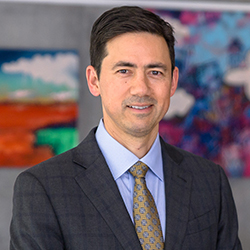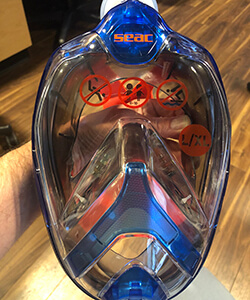Medical Students and Physicians Develop New Ways to Protect Health Providers
Medical students and physicians at the University of Arizona College of Medicine – Phoenix are collaborating with partners across the state to create innovative strategies and novel inventions to better protect health care professionals and mitigate the spread of the coronavirus.

“Most medical students are currently sidelined,” Dr. Hirsch said. “This gives them the chance to learn by innovation, development, validation and outreach. This will allow them to have a positive impact on frontline health care workers and save lives.”
The Innovation Team was recently awarded a $25,000 grant from the Flinn Foundation for coronavirus research.

One of the projects is an improved intubation isolation box. Every patient who needs a ventilator must be intubated, and this process risks showering the room and health care team with the coronavirus. A contained box to cover the patient can trap the virus and prevent transmission. Working from basic designs conceived elsewhere, the team developed a more sophisticated design that keeps health care workers safer by greatly reducing the risk of spreading Covid-19, yet is practical to build.
They also have created an alternative personal protective device that provides better coverage from the virus by using a full-face scuba mask with an adapter that incorporates a viral filter on the flow. The team has completed the 3D adapter for one type of mask and it’s ready for use.

Christensen added that shortages of personal protective equipment (PPE) — including masks, face shields and gowns — are leaving health care workers at risk for contracting COVID-19. “While it is important for industry and governments to step in to boost supplies, these supplies can take months to deliver, so any help we can provide quickly will be appreciated,” she said.
The innovation team also is asking the community and local businesses with unopened PPE to donate the supplies.
“We have seen the struggle that places like Italy and New York are facing. They are losing nurses and doctors because they don’t have sufficient equipment to protect themselves,” third-year medical student Manroop Kaur said. “We do not send our U.S. Army heroes out to war without protective equipment, and we should not be sending our health care heroes to the frontlines without proper and sufficient PPE.”
Other efforts include improving clinical decontamination protocols, better protection for aerosolizing procedures and reviewing protocols for putting on and taking off PPE.
To make these efforts come to fruition, the COVID-19 Innovation Team is looking for help from local businesses with access to 3D printers and others who might be able to donate PPE for local hospitals. For more information, contact the Innovation Team.
Topics
About the College
Founded in 2007, the University of Arizona College of Medicine – Phoenix inspires and trains exemplary physicians, scientists and leaders to advance its core missions in education, research, clinical care and service to communities across Arizona. The college’s strength lies in our collaborations and partnerships with clinical affiliates, community organizations and industry sponsors. With our primary affiliate, Banner Health, we are recognized as the premier academic medical center in Phoenix. As an anchor institution of the Phoenix Bioscience Core, the college is home to signature research programs in neurosciences, cardiopulmonary diseases, immunology, informatics and metabolism. These focus areas uniquely position us to drive biomedical research and bolster economic development in the region.
As an urban institution with strong roots in rural and tribal health, the college has graduated more than 1,000 physicians and matriculates 130 students each year. Greater than 60% of matriculating students are from Arizona and many continue training at our GME sponsored residency programs, ultimately pursuing local academic and community-based opportunities. While our traditional four-year program continues to thrive, we will launch our recently approved accelerated three-year medical student curriculum with exclusive focus on primary care. This program is designed to further enhance workforce retention needs across Arizona.
The college has embarked on our strategic plan for 2025 to 2030. Learn more.